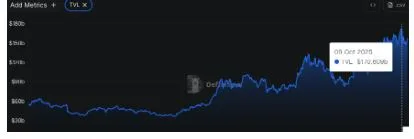Funded Trading Accounts: What to Expect
Recently, funded trading accounts have become a popular way for traders to grow their capital and pursue trading as a full-time career. By working with proprietary trading firms, traders can access trading capital and professional tools without risking their own money. Still, not every funded trading account is the same. Understanding how these accounts work, what to expect, and how to select the right firm is crucial to achieving long-term success.
This article examines how funded trading accounts operate, the advantages and disadvantages of joining one, and what innovative firms like PropFunding.com are doing to make the experience fairer, more transparent, and performance-based.
What Is a Funded Trading Account?
A funded trading account is a live account given by a proprietary trading firm to a trader who has shown enough skill and good risk management. The trader uses the firm’s money instead of their own and earns a share of the profits they make.
In most cases, traders must first pass an evaluation process, commonly referred to as a prop firm challenge, where they meet predefined performance targets and adhere to strict risk limits. Once they pass, they’re granted access to a funded account and can begin trading live markets with real capital.
What to Expect During the Evaluation Phase
Before getting a funded trading account, traders usually go through a trial or challenge to show their skills. Here’s what you can expect:
- Profit Targets: Traders must achieve a set profit goal, typically ranging from 8% to 10%.
- Drawdown Limits: Strict rules govern the maximum amount a trader can lose on any given day or over an extended period.
- Consistency Requirements: Many firms monitor trade frequency, lot sizes, and risk ratios to ensure consistent behavior.
- Trading Rules: Certain assets or strategies, such as news trading or scalping, may be restricted by the firm.
These rules are meant to test discipline and consistency, but they can also make the process tough. Many traditional firms charge upfront evaluation fees, which adds pressure to perform and creates financial risk for the trader.
Moving from Evaluation to Funded Trading
After a trader passes the evaluation, they receive a funded account. Profits are split between the trader and the firm. The trader usually keeps 70% to 90% of the profits, while the firm keeps the rest for providing capital and covering risk.
Traders can expect regular performance reviews, account monitoring, and scheduled profit withdrawals. The top firms also provide educational resources, analytics tools, and community support to help traders stay profitable over time.
Not all funded trading accounts are fair. Some firms have strict rules or delay payouts, which can frustrate traders. New data-driven prop firms are starting to change this situation.
The Rise of Data-Driven Funding Models
Firms like PropFunding.com are leading a new approach to funded trading accounts. They remove upfront evaluation fees and link success to performance data instead of challenge fees. Traders can join for free in monthly groups and only pay an activation fee after passing their evaluation.
The firm uses anonymized trading data to generate returns, which helps fund payouts and account growth. This setup removes the usual ‘pay-to-play’ conflict of interest and makes sure both the trader and the firm benefit from success.
“Our goal is simple: make trader funding sustainable by building a system where performance, not deposits, drives opportunity,” says founder Shaun Opoku.
This new approach makes funded trading accounts more accessible and transparent, and it helps traders and firms work together. It is a positive change for an industry that is often criticized for being unclear.
What to Expect After You’re Funded
After receiving a funded trading account, traders should expect:
- Real Accountability: Funded traders are expected to maintain discipline, manage risk, and control their emotions, just like institutional traders do.
- Regular Payout Cycles: Most firms offer bi-weekly or monthly withdrawals of earned profits.
- Scaling Opportunities: Consistent performance can lead to increased capital allocations and improved profit splits.
- Transparent Monitoring: The best firms offer dashboards that let traders track performance metrics, equity curves, and payout history in real time.
- Supportive Infrastructure: The best funded account programs give traders direct ways to communicate, risk dashboards, and educational support to help them get better.
A funded account is not a ‘free ride.’ It’s a professional trading environment with real accountability, and the most successful traders treat it that way.
Choosing the Right Funded Account Provider
When selecting a proprietary trading firm, traders should consider several key factors:
Transparency: Does the firm clearly explain its rules, payout systems, and risk management policies? Reputation: Look for firms with positive reviews, verified payouts, and consistent communication.
Fee Structure: Avoid firms that rely heavily on upfront challenge fees rather than shared success. Technology: The trading infrastructure should offer low latency, reliability, and robust analytics
New firms like PropFunding.com are raising the industry standard by offering transparency, fairness, and data-driven rewards. Their conflict-free model lets traders focus on growing instead of worrying about hidden fees or unclear rules. rules.
Conclusion
Funded trading accounts can be a game-changer for traders ready to scale their performance, offering access to capital, advanced technology, and the opportunity to earn without risking personal funds. However, the key is understanding what to expect and choosing a firm that aligns incentives rather than exploits them.
As the prop trading industry changes, data-driven firms like PropFunding.com show that the future of trader funding is built on transparency, fairness, and working together so both traders and firms can grow.




